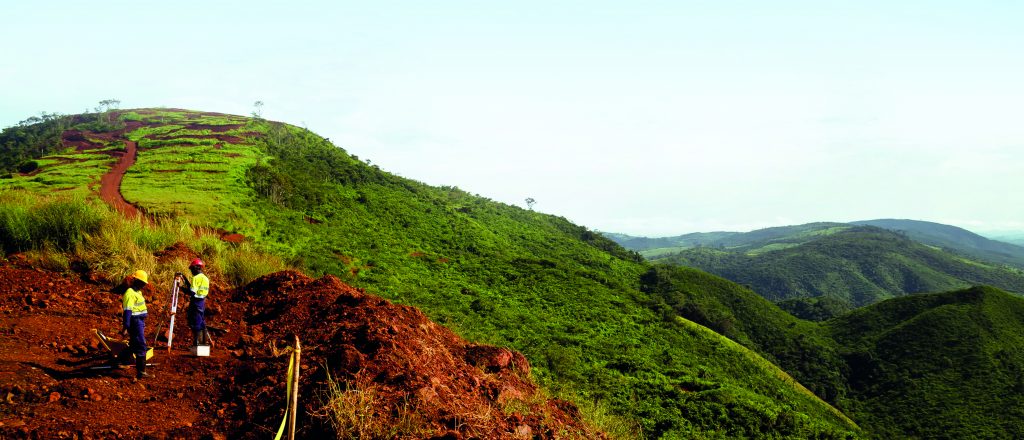Lasting, local legacies
Oil and gas companies face increasing pressure from regulators and communities to give back to people in the places where they work. Social development experts Bhavin Vyas and Yumna Ameer look at the opportunities and challenges ahead for operators as the industry becomes more socially responsible.
When gas was discovered off the coast of Mozambique in 2011, it became one of the world’s emerging oil and gas regions. With more than half of the population there living below the poverty line, it’s also one of the poorest countries in Africa.
The story is similar across the world. Industry reports suggest that over the next 20 years, 90 per cent of hydrocarbon products will come from developing countries.
Committed to change
Previously, international oil companies (IOCs) operated profitable businesses under different rules. The imperative was to bring resources into production in the quickest and most efficient way. To do this, companies employed mostly expatriate workers. While this approach generated revenues for host governments, the companies themselves weren’t legally bound to transfer knowledge or skills to the local workforce or make mandatory investments in the countries where they work.
Policies and partners
Today, most IOCs are committed to giving back to the communities where they operate through local content. This is where operators work with local and national governments, local businesses, educators and private and public organisations to ensure they contribute to sustainable development and capacity building, rather than focusing on short term, economic gain. Local content can only be a good thing for operators committed to and concerned with doing the right thing; ultimately, operators need to act responsibly if they want to be truly successful.
Shell for example reports that 95 per cent of staff they employ at their plant in Bintulu, Malaysia are nationals, while in Nigeria they’ve developed a partnership with five banks to help Nigerian contractors access finance. Meanwhile, at the end of 2015, BP in Azerbaijan reported that 85 per cent of its 3,150-strong workforce were Azerbaijani citizens.
Setting targets
Over the past decade or so governments in mature markets, such as Brazil and Kazakhstan, have been setting local content policies (LCPs) for operators to adhere to.
LCPs essentially set out basic local development, employment, training and procurement requirements that companies need to meet to operate in that country. Polices can also set out what amount or percentage of their revenue they need to spend on local welfare across health, education and infrastructure, with most asked to submit reports that show how they plan to achieve the requirements.
In the long term
Governments in frontier markets especially, including Mozambique, Tanzania and Uganda, are realising they can achieve greater long-term benefits from international companies who tap into their resources and are developing regulations to improve local content across their national oil and gas businesses.
No quick fix
Local content comes with certain realities and challenges. Operators don’t always understand local ways of getting things done, with some taking a helicopter view of their obligations. Stringent local content workforce targets can be difficult to meet. In Angola, Africa, for example, 70 per cent of the workforce must be Angolan, which could be unrealistic for international companies to achieve. High local labour targets can lead to operators focusing less on long‑term community capacity building and more on keeping the numbers right. Companies that show genuine commitment to host countries and sustainable local development, however, put themselves in a good position to maintain their social licences to operate.
Greater than numbers
Sometimes companies misinterpret ‘maximising local employment’ in LCPs as the requirement to hire local people during construction. But when projects move to operational phase, communities can experience mass unemployment, leading to frustration and fatigue in the local community, while opportunistic migration at the start of a project can leave ghost towns in their wake.
Investing in change
There’s no doubt it takes large amounts of investment and time in training local workforces to meet industry skill levels. Health and safety standards in developing countries often aren’t as robust as international companies require. As a result, raising them is a major bottleneck for operators trying to maximise local content in frontier and emerging markets, because safety cultures take generations to change; you can’t do it in a matter of months. However, in Malaysia, the Middle East and Azerbaijan, for example, companies have invested in training, assurance and stringent accountability to raise health and safety performance to industry best practice.
Commitment to local content is important if operators want to give back to local communities — and be truly successful.

Shift the focus
To meet local content challenges, operators should focus on transferring skills, investing in local businesses and utilising local industry to build capacity of communities into the future.
A good example is the partnership between Italian multinational oil and gas company Eni and the University of Maputo in Mozambique. Their Programma 200 provides graduates with onsite oil and gas sector training abroad. Meanwhile, the Malaysian oil and gas company Petronas has set up the Universiti Teknologi Petronas, where they award scholarships to South Sudanese students to undertake industrial training programmes on operational oil and gas sites.
When to start?
By setting up local procurement procedures and conducting a skills audit early on in a project, it’s possible to work out the skill deficits between a company’s expectations and what communities can offer. This can straight away provide good baseline data on what needs to be done to fill skill gaps.
Operators need to think long term. After five to six years, local content strategies can bring a huge reduction in expatriate staff costs. They can also smooth the flow and supply of goods and services in regions that struggle with international trade, logistics and customs.
Engage and empower
Host governments have a responsibility to communicate what they expect from oil and gas companies, what they want operators to support and where they lack capacity, investment and commitment to bring change. Sometimes, governments can be tied down with internal politics and bureaucracy and need help from oil and gas companies to map out a clear route forward.
At times, businesses and governments are genuinely committed to local content but communities aren’t prepared; change can be faster than their ability to cope. Every effort should be made to keep communities at the centre of plans, to find out how they want to participate and inform them of the effort required.
Shared values
These steps should be taken as early as possible in project development. Social development practitioners can help map out local community needs within Environmental and Social
Impact Assessments (ESIAs) to identify how a new project and local content plans may potentially impact upon the communities, and to understand more about their needs and abilities to contribute to local content on the ground. Early negotiation and trade-offs need to be agreed between country and company. Clear roles and responsibilities have to be established early on. Early discussions between governments and companies on partnership roles and responsibilities and exit strategies are also very important.
Patience and perseverance
Operators and host governments should be prepared for long-term strategies and tactics if they want local content to work. Oil and gas companies need to understand that meeting local content requirements is not a quick or straightforward route to licencing. They’re not going to benefit in one, two or three years’ time. Long-term vision, commitment, planning, coordination, resources and perseverance are all vital ingredients.
Ultimately, companies need to be willing to change their mindset around efficiency and profitability and accept new regulatory processes. This is a big ask, but with reputations to protect and the need for not only legal but social licences to operate, commitment to local content is important if oil companies want to be truly successful and give back to communities who need it most.

Giving back where it’s needed most
To help one of our confidential clients give back in one of the world’s richest oil-producing regions, we interviewed and held group discussions with local community leaders, non-governmental organisations, district-level government authorities and international organisations, to ask them where local people needed the most support to help ensure sustainable development in the region.
Through our discussions and researching local ways of life, we identified four areas to improve local infrastructure and services. These included capacity building, education, agriculture and infrastructure and environment and health.
It was clear that local schools needed refurbishing, students required new equipment and investing in new and better learning spaces would bring greater opportunities for locals to receive vocational training.
Improving irrigation links, building better storage and processing facilities, artesian wells, pumps and filters would provide greater access to clean water.
Investing in waste bins and collection facilities would improve sanitary conditions and the local environment for rural communities in the region.
Through education it would also be possible to change local behaviours to encourage the community to embrace and adapt to sustainable waste management and disposal.
Crucially, by involving the community and understanding their needs and priorities, we’re helping our client gain local acceptance and approval to operate in the region, helping to secure their social licence to operate in the country and into the future.
Our client has since started rolling out a social investment programme in the area based on our recommendations.
From Brazil to Tanzania – A snapshot of local content policies across the world:
Trinidad and Tobago
- Oil and gas operators must maintain local content expenditure records and submit detailed local content statements to regulators each quarter
- The Ministry of Energy and Energy Affairs and operators are required to put together a list of goods and services that can be procured locally
- Operators must train nationals to fill decision-making positions with the view to replace expatriate workers
Brazil
- To win an oil and gas project bid, operators must meet a minimum local content threshold
- There are no employment or training requirements in the Brazilian legal framework for local content
- Oil and gas companies are required to spend one per cent of gross revenues on research and development
Ghana
- Operators must submit local content plans with a project application
- Operators must employ a prescribed minimum number of Ghanaians, increasing over the first 10 years of a project
- Penalties for non-compliance include monetary fines and jail terms of up to two years
Nigeria
- Nigeria’s local content legislation came into effect in 2010
- Only five per cent of management positions on petroleum projects can be filled by expatriates
- Operators must develop technology transfer, research and development plans
- Companies must submit annual local content reports called Nigerian Content Performance Reports to regulators
Tanzania
- The country’s draft local content policy for oil and gas was published in 2014
- Operators must submit an employment and training plan for each exploration or development licence application
- The Petroleum Act stipulates operators should form a joint venture with local companies when local goods and services aren’t available
Kazakhstan
- The Law on Subsoil and Subsoil Use (2010) is the primary local content regulation across mining and oil and gas in Kazakhstan
- Under The Law, project bids must include plans to undertake research and development in Kazakhstan, infrastructure development and express commitment to training Kazakhstani personnel
Source: Columbia Centre on Sustainable Development’s Local Content Laws & Contractual Provisions
http://ccsi.columbia.edu/work/projects/local-content-laws-contractual-provisions/







